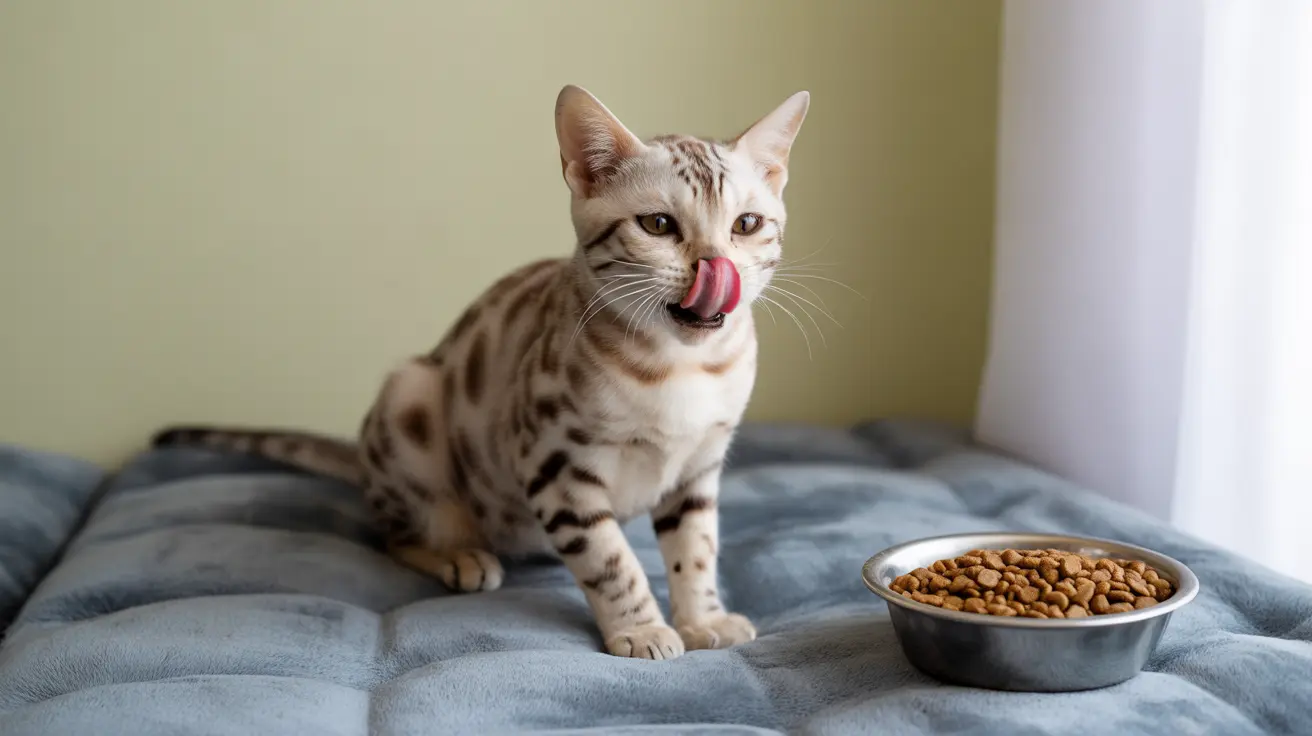Common Causes of Tongue Problems in Cats
Physical Trauma and Injuries
Cats can injure their tongues through various accidents, including burns from hot food, electrical cord injuries, or getting their tongue caught on sharp objects. These injuries often result in immediate swelling and pain, requiring prompt medical attention.
Infections and Disease
Viral infections like Feline Calicivirus and Feline Herpesvirus commonly cause tongue inflammation and ulcers. Bacterial and fungal infections, particularly in immunocompromised cats, can lead to significant tongue problems and require specific medical treatment.
Recognizing Warning Signs
Visual Changes
Look for unusual swelling, color changes, or visible lesions on your cat's tongue. A healthy cat tongue should be pink and uniform in color. Any patches, masses, or significant changes warrant veterinary examination.
Behavioral Indicators
Cats with tongue problems often show changes in eating habits, excessive drooling, or pawing at their mouth. You might notice them struggling to eat, drink, or groom themselves effectively.
Diagnosis and Treatment Options
Professional Evaluation
Veterinarians typically perform a thorough oral examination, sometimes requiring sedation for proper assessment. They may recommend blood tests, cultures, or biopsies depending on the suspected cause.
Treatment Approaches
Treatment varies based on the underlying cause:
- Antibiotics or antivirals for infections
- Anti-inflammatory medications for immune-mediated conditions
- Surgery for tumors or foreign bodies
- Supportive care including pain management and feeding assistance
Preventive Care and Monitoring
Regular veterinary check-ups can help catch oral health issues early. Maintain a safe environment free from potential hazards, and keep your cat's vaccinations current to prevent common viral infections that affect the mouth.
Frequently Asked Questions
What are the most common causes of a swollen or unhealthy tongue in cats?
The most common causes include viral infections (especially Calicivirus), physical trauma, allergic reactions, immune-mediated conditions, and occasionally oral tumors. Each requires different treatment approaches and levels of urgency.
How can I tell if my cat's tongue swelling is an emergency that needs immediate veterinary care?
Seek emergency care if you notice sudden severe swelling, difficulty breathing, excessive drooling, or complete refusal to eat or drink. These symptoms could indicate a serious condition requiring immediate medical attention.
What symptoms should make me suspect my cat has an infection or tumor on its tongue?
Watch for persistent swelling, unusual growths, ulcers, white patches, or bleeding. Changes in eating habits, bad breath, and excessive drooling can also indicate infection or tumors.
How do veterinarians diagnose and treat tongue injuries or diseases in cats?
Veterinarians typically perform physical examinations, blood tests, and sometimes tissue biopsies. Treatment may include medications, surgery, or supportive care depending on the specific condition.
Can underlying diseases like kidney or liver problems cause swelling or ulcers on my cat's tongue?
Yes, systemic diseases can affect oral health. Kidney disease often leads to mouth ulcers due to increased toxins in the body, while liver disease can cause inflammation throughout the body, including the tongue.
Remember, early intervention is crucial for the best possible outcomes when dealing with any oral health issues in cats. If you notice changes in your cat's tongue or eating habits, don't hesitate to consult your veterinarian.






